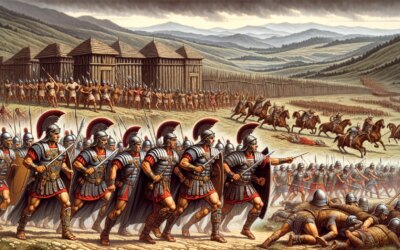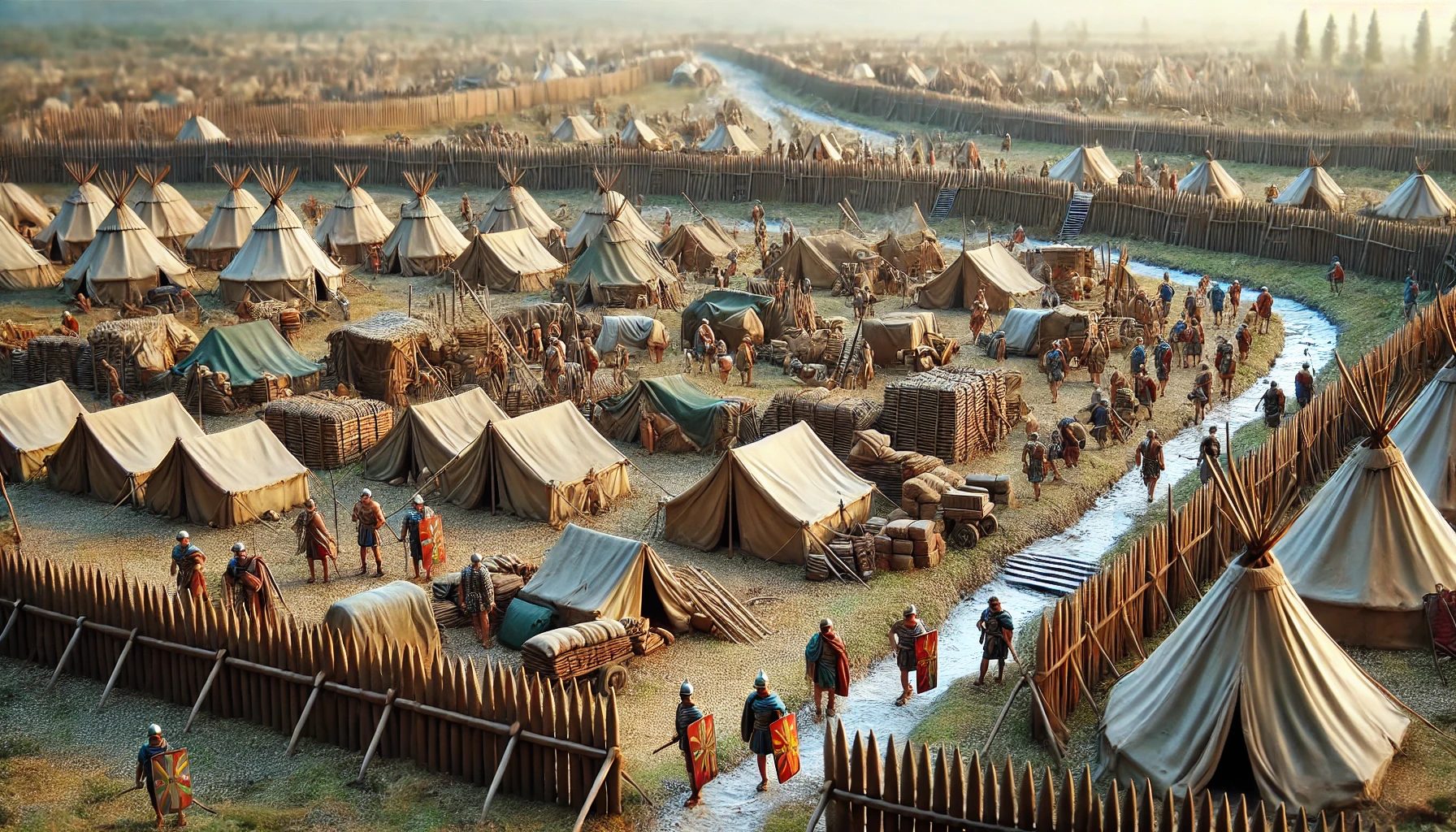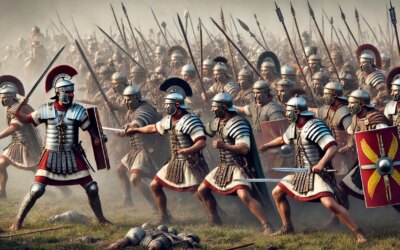Introduction: An Emperor on the Frontier
In 174 AD, Emperor Marcus Aurelius, known more for his Stoic philosophy than for his military exploits, found himself leading Roman legions in brutal campaigns along the Danube frontier. Confronted with relentless barbarian incursions, Marcus had to embody the virtues he philosophized about—courage, perseverance, and justice—on the battlefield. His leadership during the Marcomannic Wars helped secure Rome’s northern borders and left an enduring legacy of wise rule under fire.
Background: Trouble on the Danube
By the mid-2nd century AD, Rome’s northern frontier faced increasing pressure from Germanic tribes and Sarmatian groups. Years of relative peace had left the empire vulnerable. The Marcomanni, Quadi, and other tribes crossed the Danube, attacking Roman territories in Pannonia and Noricum. For Marcus Aurelius, defending the empire required prolonged and grueling military campaigns in harsh conditions.
The Philosopher-Emperor at War
Unlike many of his predecessors, Marcus Aurelius did not relish war. Yet he understood its necessity. As commander-in-chief, he personally oversaw strategy, logistics, and negotiations. He spent much of the 170s AD living in military camps along the Danube, enduring the same hardships as his soldiers. His famous work, Meditations, written during these campaigns, reflects his efforts to reconcile the brutality of war with Stoic ideals of virtue and reason.
The Campaigns of 174 AD
In 174 AD, the Roman legions launched significant offensives against the Quadi and other tribes. Marcus adopted a methodical approach: establishing fortified bases, securing supply lines, and slowly wearing down enemy resistance. In one famous episode, Roman sources recount how a sudden thunderstorm saved a Roman legion surrounded by Quadi warriors—an event attributed to divine intervention and celebrated in Roman propaganda as “The Miracle of the Rain.”
Challenges and Achievements
Marcus faced not only military opposition but also logistical nightmares—disease, desertion, and supply shortages were constant threats. Nevertheless, by 174 AD, the Romans had regained the initiative, pushing the tribes back beyond the Danube and reasserting control over key territories. Plans were even made to create new Roman provinces north of the Danube, although these ambitions would be cut short by events back in Italy.
Philosophy in Action
Marcus Aurelius’ conduct during the campaigns exemplified Stoic discipline. He emphasized rational decision-making, compassion toward civilians, and clemency toward defeated foes when possible. His writings reveal a man deeply conscious of the transient nature of power and the moral burdens of leadership, offering a rare glimpse into the mind of a ruler who sought to live his principles even amid violence and chaos.
Legacy of the Danube Wars
The campaigns along the Danube strengthened Rome’s frontiers and delayed the pressures that would later contribute to the empire’s decline. Marcus’ blend of philosophy and practical leadership became a model for future generations, influencing thinkers and statesmen for centuries to come.
Conclusion: Stoicism at the Edge of Empire
In the muddy camps and bloodied fields of the Danube frontier, Marcus Aurelius proved that philosophy and leadership could coexist even in the harshest circumstances. His campaigns of 174 AD were not just military victories; they were triumphs of character and conviction, embodying the best of Roman resilience and wisdom at a time when both were desperately needed.






